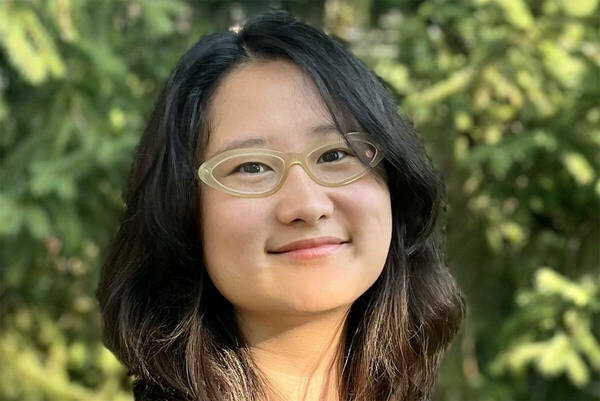
Angela Xia joined the Cushwa Center as a postdoctoral fellow in summer 2024. She received her Ph.D. in religious studies from the University of Pennsylvania and her B.A. in American studies from Columbia University. Her research examines interactions between religion, secularism, and biomedicine in the late 20th century. Her dissertation used the case study of eldercare to understand how religion has shaped the ethics and infrastructure of modern American healthcare. Shane Ulbrich corresponded with Angela in July 2024 about her graduate studies, dissertation, and the year ahead.
Shane Ulbrich: Tell us about your graduate school experience at UPenn.
Angela Xia: I experienced a lot of growth at UPenn. I came to graduate school right out of college, with a lot of enthusiasm but also a lot to learn about academic life. Luckily the faculty of UPenn’s religious studies department were wonderful mentors. They were generous with their time, constructive in their feedback, and always transparent about their work processes. They also encouraged me to think deeply about who I am writing for and why.
Another formative element of my graduate training was the community of graduate students that formed in and around the religious studies department. This group included students from various disciplinary backgrounds and areas of research interest, from Persianate manuscripts to Hindu temples in Thailand. Talking, reading, and writing with these colleagues—who are now my dear friends—expanded my world, provincializing America and emphasizing to me the importance of global, cross-disciplinary connections.
SU: You recently defended your dissertation—congratulations! Could you tell us a bit about it? How did you arrive at the topic?
AX: Thank you so much! In my dissertation, “The Rest of Life: Old Age and the Politics of Care, 1946–1981,” I narrate major changes in the history of American eldercare from the postwar era to the eve of the Reagan presidency. My goal with this project was to show how religion, secularism, and privatization shaped the meaning and distribution of elder care.
“The Rest of Life” was not the dissertation that I expected to write when I arrived at UPenn in 2018. At that time, I was an ethnographer who wanted to study religious “nones.” That quickly changed as I began taking coursework in the history of medicine and disability studies, which sparked questions about “care” both as a concept and a product of historical forces. Soon afterwards, the COVID-19 pandemic began, leading me to think more about health. I was particularly struck by the infrastructure for long-term care, which began under the auspices of religious institutions but gradually privatized in the 20th century.
SU: What was your favorite chapter to write?
AX: My favorite chapter of “The Rest of Life” described changing ideas about filiality (which I define as the relationship between the old and the young) among Asian American immigrants in the 1970s. The historical actors in this chapter initially regarded filiality as an essentially “Asian” characteristic, especially via the idea of filial piety. Such ideas designated the family as principal caregivers for the elderly. Yet as these same historical actors continued their lives in the United States, they revised their thinking, focusing not on strengthening family ties but on creating elder care infrastructure, such as senior housing developments. Documenting this transition was fascinating for me, and I hope to expand on it further during my time at Notre Dame.
SU: You hadn’t visited Notre Dame until this spring. Tell us about your decision to apply for and then accept this fellowship at the Cushwa Center.
AX: Because I spent my graduate school years in a small department with each colleague specializing in a different topic, language, or tradition, I wanted to find a postgraduate environment where I could hone my skills as a scholar of American religions. The Cushwa Center—with its explicit interest in American religions and its extensive programming—is an excellent place to do that, and that is why I applied for the fellowship.
The reason I accepted the fellowship was because of my wonderful interview experience. After talking with Darren, David, and you, I felt so energized. I was also moved that you and they had read my application and writing sample so closely. The interview catalyzed my transition from graduate student to junior scholar, and I knew from that point that if I was offered the fellowship, I would absolutely accept it.
SU: We’re very glad to have you with us! What are a few things you’re looking forward to in the year ahead?
AX: So many things! In addition to starting my fellowship and getting to know people at Notre Dame, I am also looking forward to walks and bike rides around South Bend, resuming a (now-dormant) ceramics hobby, and getting to know my neighbors.
Originally published by at cushwa.nd.edu on August 22, 2024.